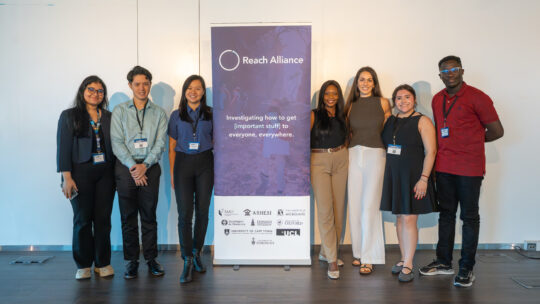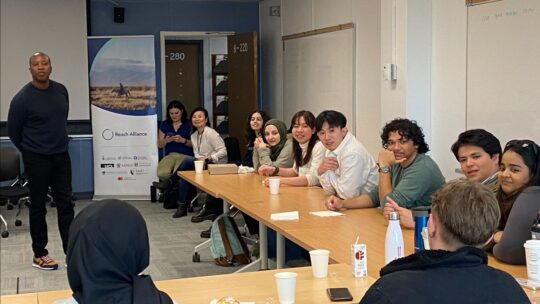News
How Sustainable is Your Food System?
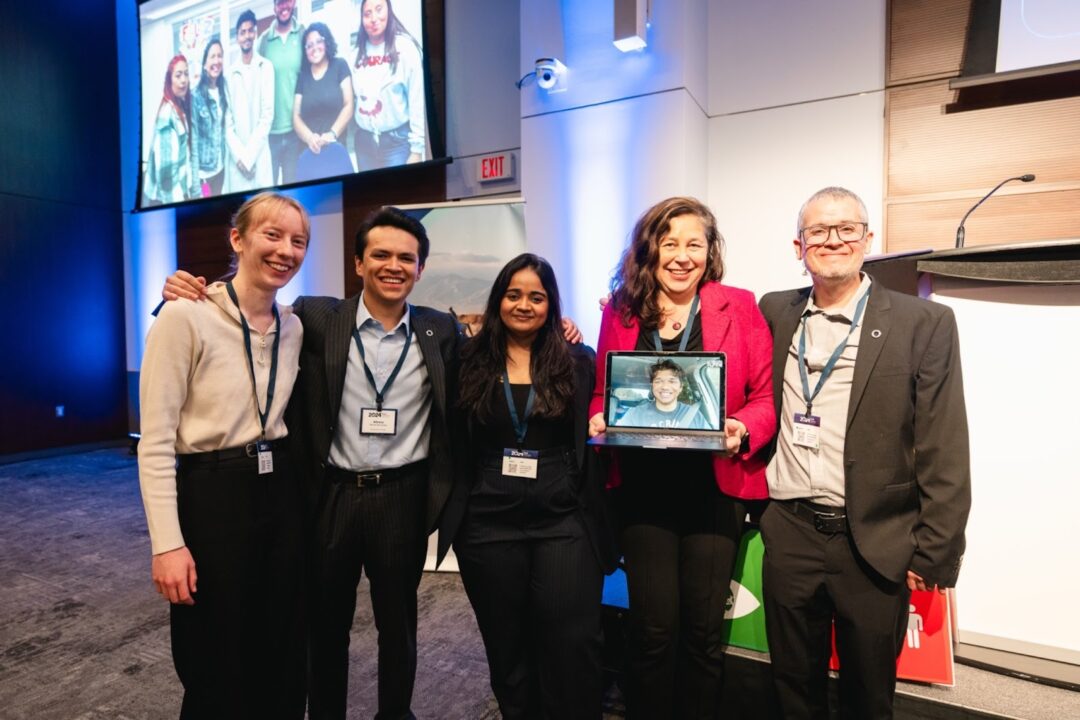
Reflections from the 2024 Reach Conference
As the Doomsday Clock ticks closer to midnight, signalling the growing urgency of global crises like climate change, we are reminded of the consequences of our actions on our future and that of generations to come. In Jalisco, Mexico, where agriculture forms the foundation of the state’s economy and culture, rising temperatures, low rainfall, and increasing soil degradation are growing challenges to sustainable food production. These changes in climate not only jeopardize food security but also threaten the livelihoods of local farmers.
The influx of heavily subsidized American agricultural products and cheap imports created instability and placed immense pressure on local farmers, particularly small-scale producers. Many have struggled to compete with large-scale industrial farms, leading to shifts in production patterns that have raised concerns about land and community well-being. In response to these challenges, small-scale farmers are turning to adaptive strategies to restore and protect their land. Through agroecological and sustainable farming methods, they are working to rebuild the soil’s health and improve crop production. Campesinos are not only embracing traditional techniques but fostering community networks where they share knowledge and encourage neighbouring families to adopt more efficient, sustainable farming practices. In this way, Jalisco’s farming communities are growing together, cultivating a more resilient food system.
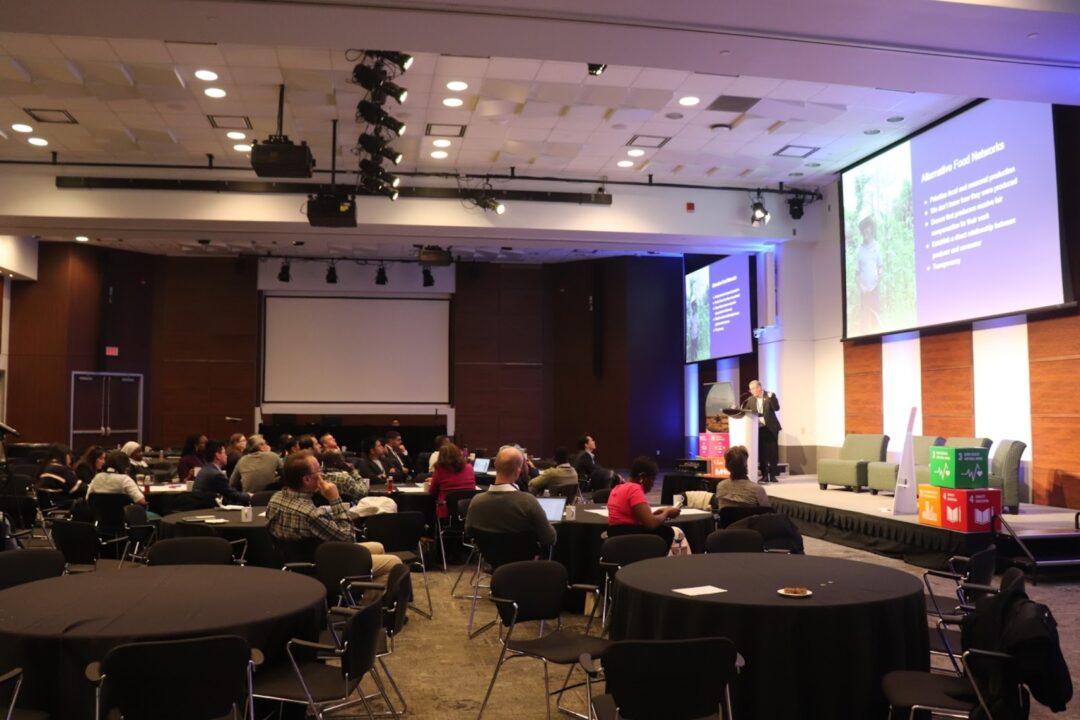
At the 2024 Reach symposium, the session “Transforming Food Systems” took a deeper look into a simple question: Where does your food come from?
It began with opening remarks by Gregorio Leal, our community partner and an internationally-renowned expert on alternative food networks. He highlighted the challenges that Jalisco is facing as a result of industrial agriculture, allowing the audience to empathize with those communities.
After the introductory talk, there was an opportunity for researchers and academic experts to reflect, discuss and confront the complexities and inequities that define our food systems through a series of questions.
- Where does your food come from?
- Who are the communities, businesses, and organizations involved in getting it to you?
- How have policies and politics played a role in the globalization of food systems?
- Reflect on your country’s or culture’s traditional food. How often are you able to consume those dishes and how have production practices shifted over your life?
- If you were to buy food outside of a regular supermarket in your community today, do you know where you would do so? How expensive would that be?
- What is the first step you will take to transform your food system when arriving home?
For many of them, the answer was both simple and complex, with each table having separate discussions about what food systems meant in their cultural contexts.

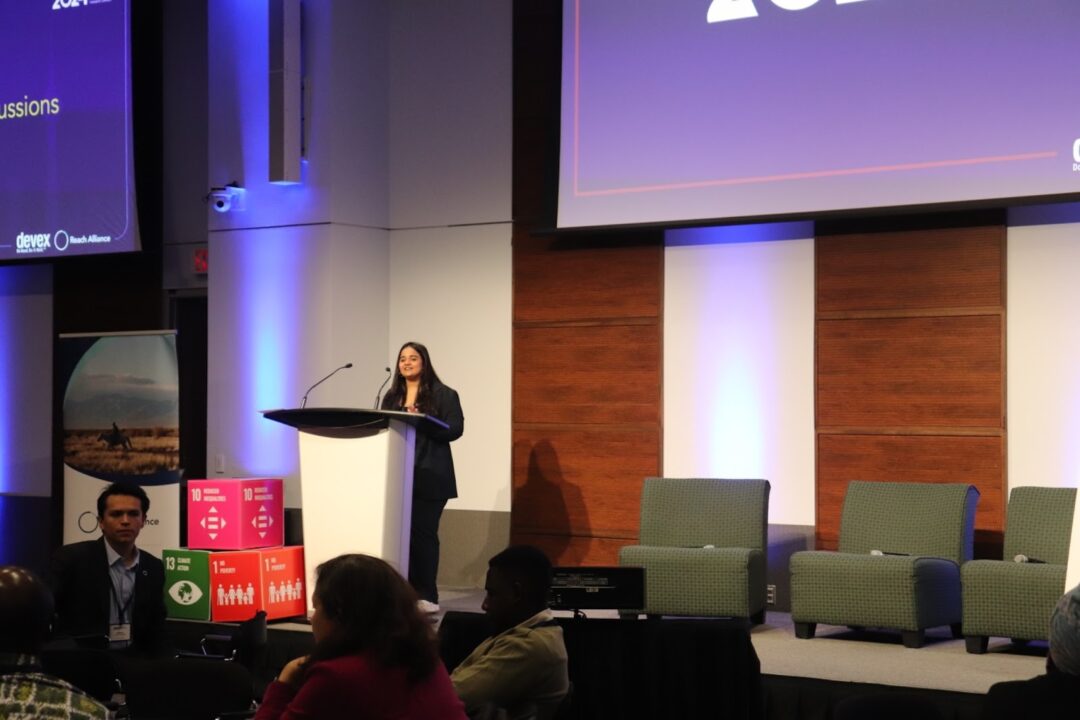
As Mexico faces mounting environmental challenges, agroecological producers are embracing traditional agricultural methods, including ancestral farming techniques that honour the land and preserve biodiversity. By combining these practices with modern sustainable technologies, they foster a deep connection between the earth, culture, and people, rooted in the belief that the land is sacred.
These efforts represent a powerful shift, with the potential to inspire change far beyond local borders. Farmers envision a future where traditional farming systems are revitalized and expanded, nourishing both the soil and the cultural identity of rural communities while producing sustainable maize, avocados, and agave. Here, a nationwide network of markets thrives, supporting local producers, preserving cultural traditions, and guaranteeing food sovereignty for future generations.
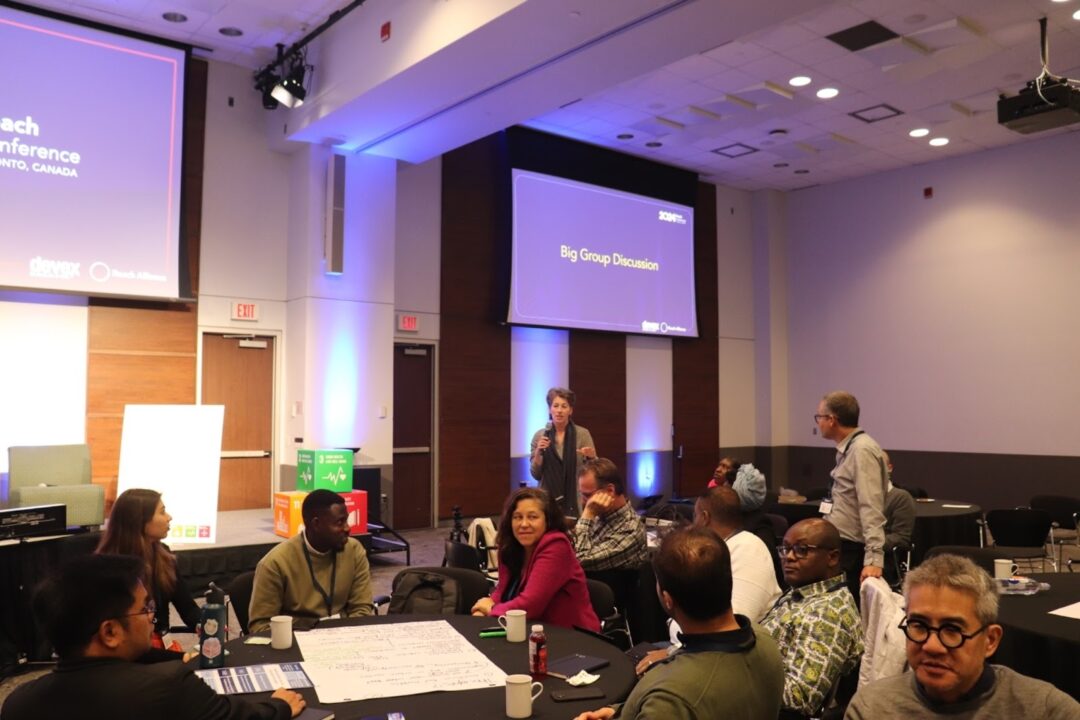
As everyone left, we asked them to leave a sticky note to reflect on the initial steps they will take to transform their food systems when arriving home. There was significant variation in the answers. Some were relatively simple, such as “understand instead of just glance at food labels” and “think more about what sustainability in food means,” while others took the mission to heart, committing to “join [their] local slow food network” and “ask about the supply chains of [their] local grocery stores.”
As we have reflected on in many of our research discussions, the range of takeaways from each person is the biggest takeaway for solving this challenge! Food systems impact everyone on the planet, from the smallest children to the most experienced farmers. They are powered by millions of decisions that each of us make every day, and while some people’s journey involves only eating food, for others their impact is made through purchasing, cooking, and choosing careers in food services and agriculture.
So however food impacts you, we encourage you to reflect on how you can make your choices more sustainable.
“The decisions we make every day about what we eat can contribute to the deepening of problems stemming from conventional agri-food systems, or contribute to the reproduction of local alternatives that put life at the center.” –
